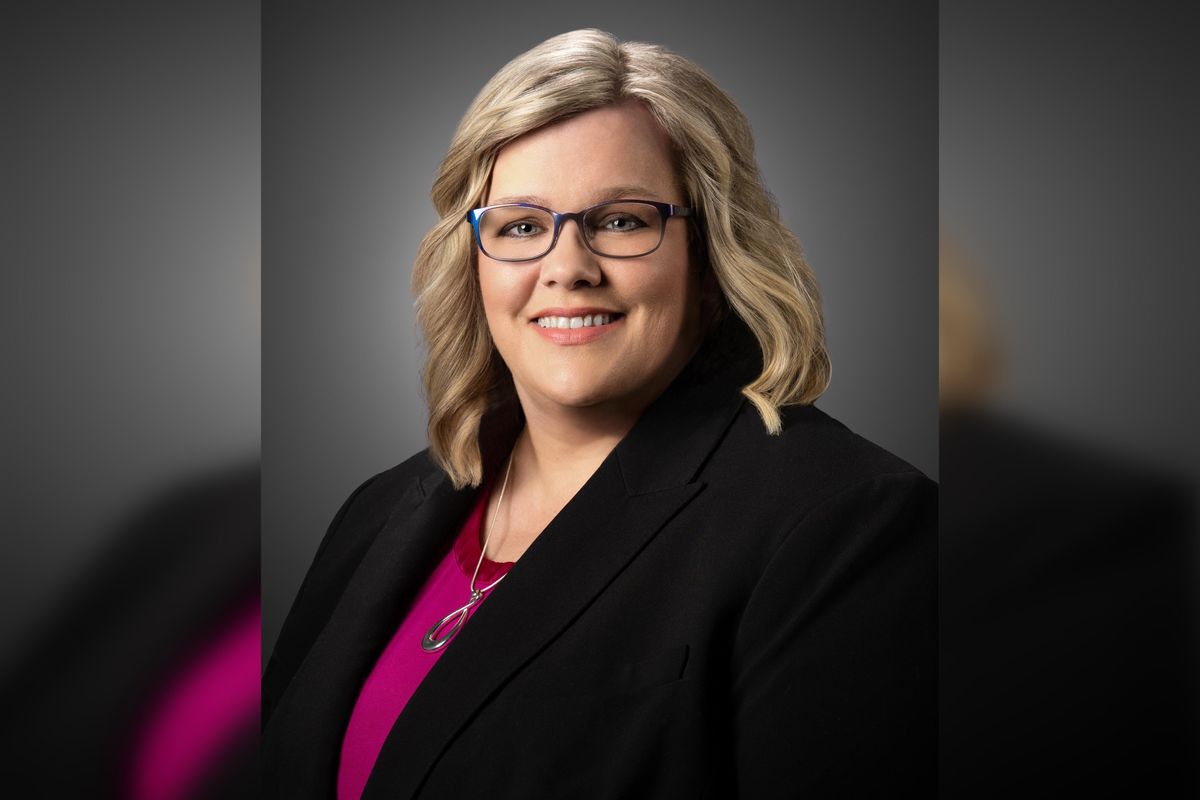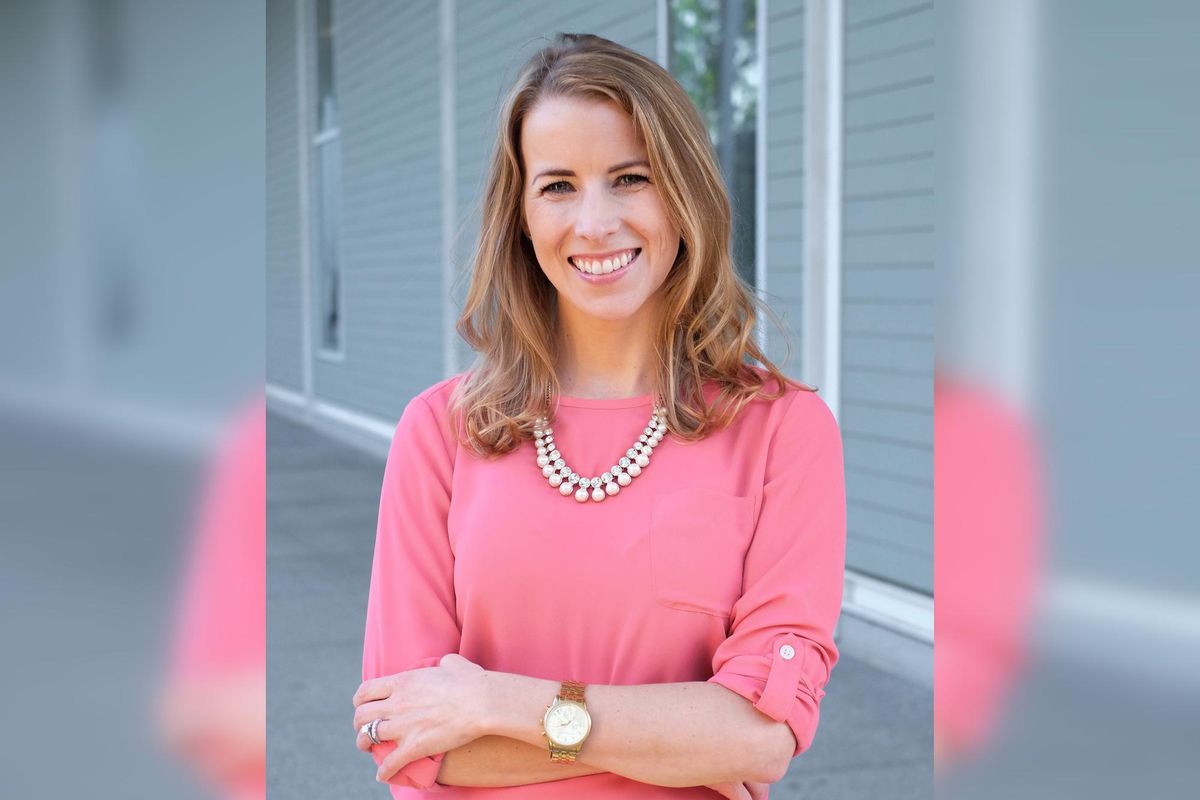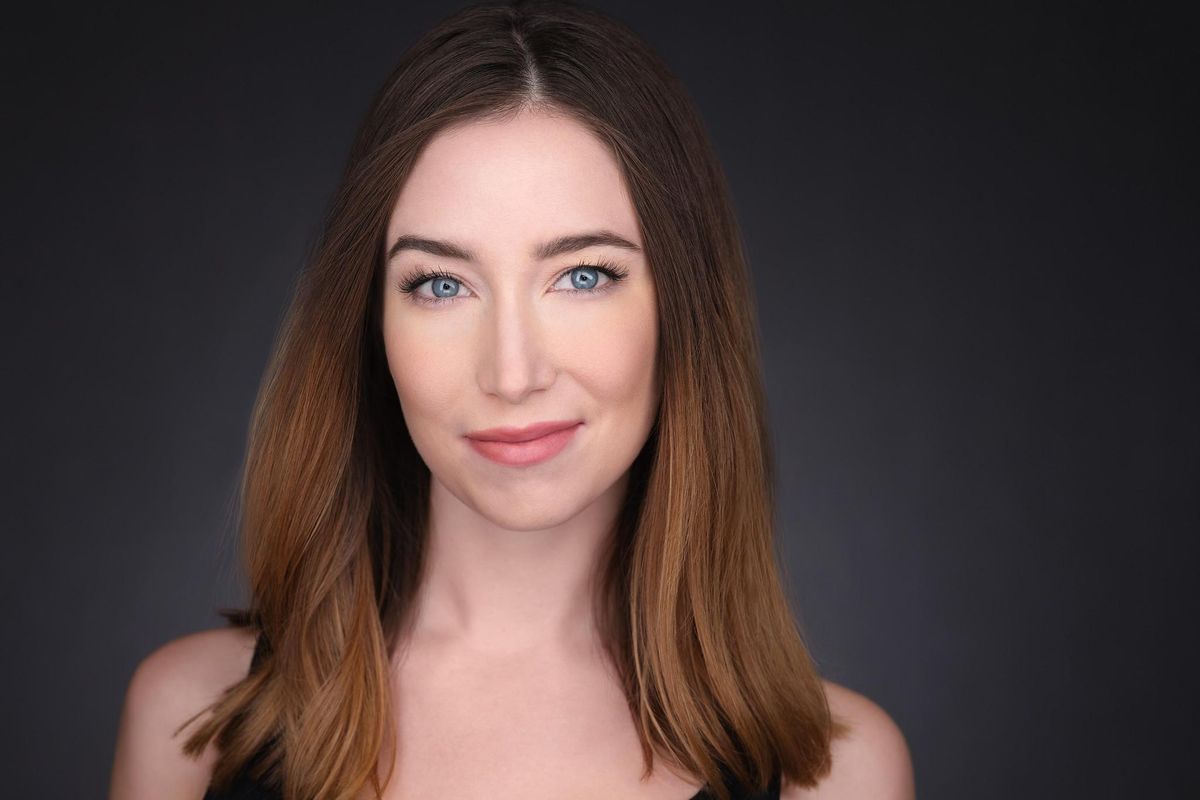Editor's note: In this week's roundup of Houston innovators to know, I'm introducing you to three local innovators across industries — from sports tech to venture capital — recently making headlines in Houston innovation.
Kelly Pracht, CEO and co-founder of nVenue

nVenue's proprietary predictive analytics appear at the bottom right corner of the screen on Apple TV broadcasts. Photo via nvenue.com
Next time you're watching an Astros game on Apple TV, check the bottom right-hand side of the screen. That prediction data comes by way of a Texas startup with deep Houston roots. nVenue, co-founded by Houstonian Kelly Pracht, struck a deal earlier this year that allowed her data-driven sports analytics platform on the screens of baseball viewers this season.
"In under two weeks we structured the deal, convinced them it worked, pulled together every bit of testing we could — by then we only had one week of pre-season games to test — and we pulled it off," Pracht says.
The technology has a lot of potential when it comes to microbetting — a part of sports fandom that's growing by the second. Click here to read more.
Aimee Gardner, CEO and president of SurgWise

SurgeWise is giving surgical teams the right support for hiring. Photo via SurgWise.com
Hiring surgeons is a whole thing — tons of paperwork, inequitable and archaic processes, and lots of medical practitioners' time wasted. Five years ago, Aimee Gardner came up with a solution and founded SurgWise Consulting, where she serves as president and CEO.
"We help provide assessments to help screen competencies and attributes that people care about," Gardner says. "(Those) are really hard to assess, but really differentiate people who really thrive in training in their careers and people who don't."
Now, Gardner is tapping into the last five years of data she's accumulated and has big plans for developing a tech platform for her solution. Click here to read more.
Kelly Avant, investment associate at Mercury Fund

Kelly Avant, investment associate at Houston-based Mercury Fund, shares how and why she made her way into the venture capital arena. Photo courtesy of Mercury
Kelly Avant's resume might not make sense to you at first. She went from a gender studies major in undergrad, followed by a stint in the Peace Corps, before heading to law school. After moving on to get her MBA over her JD, Avant realized a way she could really make the biggest impact: venture capital.
"VC is an awesome way to shape the future in a more positive way because you literally get to wire money to the most innovative thinkers, who are building solutions to the world’s problems," Avant tells InnovationMap.
Avant joined the Mercury Fund team last year as an MBA associate before joining full time as investment associate. Now, after completing her MBA from Rice University this month, Avant tells InnovationMap why she's excited about this new career in investment in a Q&A. Click here to read more.

 Apple doubles down on Houston with new production facility, training center Photo courtesy Apple.
Apple doubles down on Houston with new production facility, training center Photo courtesy Apple.